
Urdu poetry is a tradition of poetry and has many different forms. Today, it is an important part of the culture of India and Pakistan. According to Naseer Turabi there are five major poets of Urdu: Mir Taqi Mir (d.1810), Mirza Ghalib, Mir Anees (d.1874), Muhammad Iqbal and Josh Malihabadi (d.1982). The language of Urdu reached its pinnacle under the British Raj, and it received official status. All famous writers of Urdu language including Ghalib and Iqbal were given British scholarships. Following the Partition of India in 1947, it found major poets and scholars were divided along the nationalistic lines. However, Urdu poetry is cherished in both the nations. Both the Muslims and Hindus from across the border continue the tradition.

Asrar-ul-Haq, better known as Majaz Lakhnawi, was an Indian Urdu poet. He is known for his romantic and revolutionary poetry. He composed ghazals and nazms in Urdu. He was the maternal uncle of poet and screenplay writer Javed Akhtar and Indian-American psychoanalyst Salman Akhtar.
A shayar is a poet who composes sher or couplet in Urdu poetry. A shayar is someone who writes ghazals, nazms using the Urdu, Hindi & Bangla language.
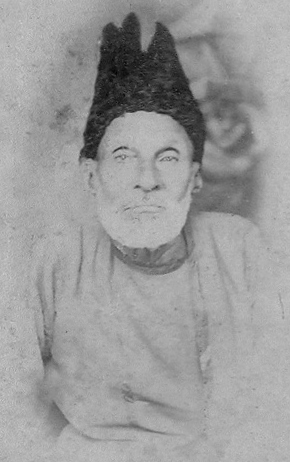
Mirza Beg Asadullah Khan (1797–1869), also known as Mirza Ghalib, was an Indian poet. He was popularly known by the pen names Ghalib and Asad. His honorific was Dabir-ul-Mulk, Najm-ud-Daula. During his lifetime, the already declining Mughal Empire was eclipsed and displaced by the British East India Company rule and finally deposed following the defeat of the Indian Rebellion of 1857; these are described through his work.
Nazm is a major part of Urdu and Sindhi poetry that is normally written in rhymed verse and also in modern prose-style poems. Nazm is a significant genre of Urdu and Sindhi poetry; the other one is known as ghazal.

Nazeer Akbarabadi was an 18th-century Indian poet known as "Father of Nazm", who wrote Urdu ghazals and nazms under the pen name (takhallus) "Nazeer", most remembered for his poems like Banjaranama, a satire.
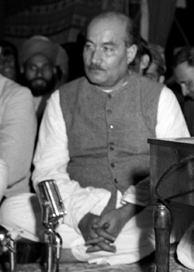
Josh Malihabadi popularly known as Shayar-e-Inqalab was one of the finest Urdu poets of the era of British India. Known for his liberal values and challenging the established order, he wrote over 100,000 couplets and more than 1,000 rubaiyat in his lifetime. His wrote Yaadon ki Barat, his autobiography which is noted for its frank and candid style. The first Prime Minister of India, Jawaharlal Nehru held him in high esteem and frequently attended the mushaira at Lala Kishan Lal Kalra's United Coffee House where Josh performed.
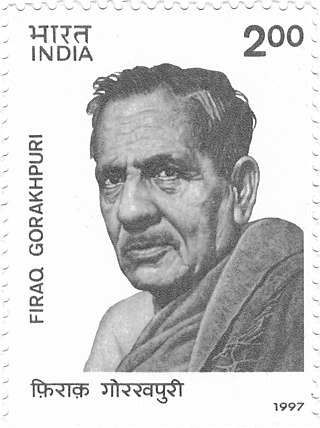
Raghupati Sahay, also known by his pen name Firaq Gorakhpuri, was an Indian writer, critic, and, according to one commentator, one of the most noted contemporary Urdu poets from India. He established himself among peers including Muhammad Iqbal, Yagana Changezi, Jigar Moradabadi and Josh Malihabadi.
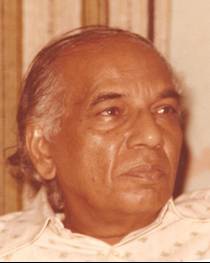
Syed Ali Jawad Zaidi was an Indian Urdu poet, scholar, and author of over 80 books in several languages. He was also an Indian independence activist, lawyer and later, a civil servant, but is best known for his work in Urdu literature.
Mohammad Sanaullah Dar, better known as Meeraji was an Indian Urdu poet. He lived the life of a bohemian, working only intermittently.
A marsiya is an elegiac poem written to commemorate the martyrdom and valour of Hussain ibn Ali and his comrades of the Karbala. Marsiyas are essentially religious.
Makhmoor Saeedi was an Urdu poet, writer, translator and journalist from Tonk, Rajasthan, India.
Unwan Chishti was an Urdu poet who gained repute as a poet, as a scholar, as a teacher and as a literary critic. He was the disciple of Abr Ahasani Gunnauri.

Shamim Hashimi is an Urdu and Persian poet. He is basically a poet of Ghazal. He has also written poems of other forms of poetry in different meters.
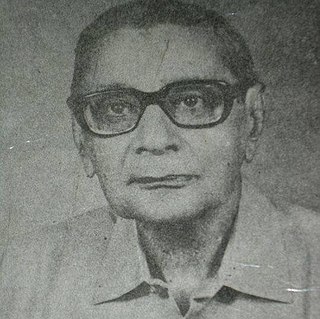
Raza Naqvi Wahi was an Indian Urdu-language poet during his time. He used the takhallus of Wahi.
Sheikh Mohammed Irfan alias Shaukat Pardesi was a poet, journalist and lyricist born in Malaysia, where his father Sheikh Sahib Ali had migrated from Maroofpur village in Jaunpur district of India. During 1950's Pardesi was associated with Urdu Daily Inquilab for some-time and also acted as the editor of Film Times Weekly magazine. He published and edited an acclaimed monthly Urdu magazine titled Munna for children. The writings of eminent writers like Niaz Fatehpuri, Ale Ahmad Suroor, Faiz Ahmed Faiz, etc. had supported Munna magazine during that time. His ghazals and nazms were published in almost all known Urdu journals and were recorded by HMV in the melodious voices of various famous singers of his time viz. Talat Mahmood, Manna Dey, C. H. Atma, Anup Jalota, Dilraj Kaur, Shailendra Singh, Shyam Lala, Mukesh and others.
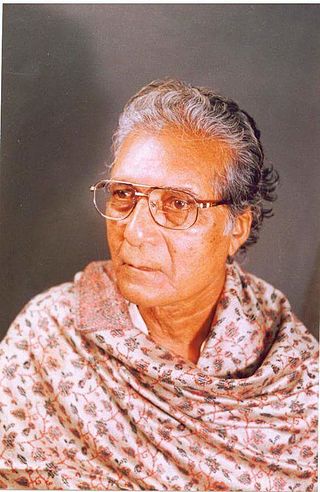
Shahid Kabir was an Urdu language poet and writer from Maharashtra, India. He was an active writer from 1952, writing poetry, short stories and articles. He was well-known mainly for his ghazals. His significant works include Kachchi Deewaren, Charon Aour and Pehchaan. He was recognised by the Maharashtra State Urdu Academy. His ghazals have been sung by several Indian singers including Jagjit Singh, Chitra Singh, Hariharan, Chandan Dass, Munni Begum Shishir Parkhie and Sabri brothers.
Bismil Azimabadi was an Indian freedom fighter, landlord, and an Urdu poet from Patna, the capital of Bihar.

Shehzad Ahmed, was a Pakistani Urdu poet, writer and director of Majlis-i-Taraqqi-i-Adab, an old book library of Pakistan. Shehzad's poetry collection comprise about thirty books and with several other publications on psychology. In 1990s, he earned a national recognition and was awarded Pride of Performance award by the Government of Pakistan. He is also credited for translating non-Urdu poems into Urdu language.
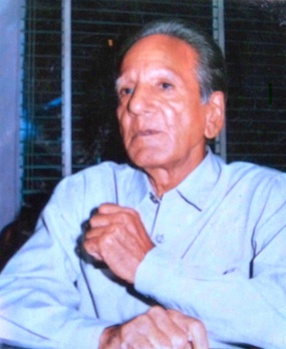
Saifuddin Saif was a Pakistani lyricist, poet, film producer-director, and the founder of Rehnuma Films, a film studio of 1954.














